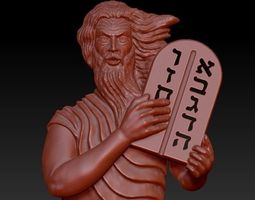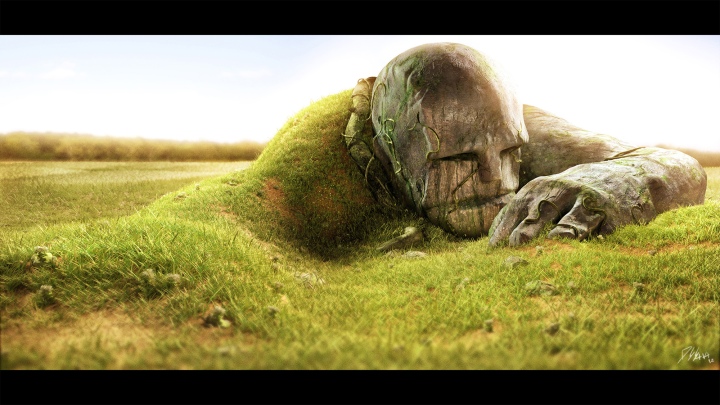 The brain is moving far quicker than the fingers can possibly keep up. Following the last entry, I found my copy of Did the Greeks Believe In Their Myths and have spent the past afternoon reading the opening chapters. The book is definitely not a A Dummies Guide to Mythology and it took a concerted effort to not drown under the waves of academic references that I was unfamiliar with (having not been a scholar in ancient literature or literary criticism). What I’m getting from the text is that it is anachronistic to apply dispassionate critical measures of veracity to ancient tales or histories. That is, the “modern” method of measuring veracity by primary source/secondary source references was completely foreign and even the use of references at all was frowned up by ancient historians. In a sense, the historian was the source and should be “trusted” and one who would refer to another resource was thought to be hurting his own veracity by leaning on the truthfulness of another.
The brain is moving far quicker than the fingers can possibly keep up. Following the last entry, I found my copy of Did the Greeks Believe In Their Myths and have spent the past afternoon reading the opening chapters. The book is definitely not a A Dummies Guide to Mythology and it took a concerted effort to not drown under the waves of academic references that I was unfamiliar with (having not been a scholar in ancient literature or literary criticism). What I’m getting from the text is that it is anachronistic to apply dispassionate critical measures of veracity to ancient tales or histories. That is, the “modern” method of measuring veracity by primary source/secondary source references was completely foreign and even the use of references at all was frowned up by ancient historians. In a sense, the historian was the source and should be “trusted” and one who would refer to another resource was thought to be hurting his own veracity by leaning on the truthfulness of another.
One interesting comment was that ancient texts more closely related to journalism than to some kind of clinical legal record of the events. The sense was that the story was not meant to uncover all details but simply to tell the story. As a journalism major I was always amused in my classes where the errors of our predecessors were expounded upon (“yellow journalism” and the like), where we distance ourselves from those practices because we believe in “objectivity;” thus ignoring the fact that the editorial process (which stories were covered and what’s the angle/slant of the story) and even the linear fashion of recording events which are only linear in our understanding, make modern journalism less than completely “objective.” So, to have Veyne draw a similarity between ancient historians and journalism is very funny to me.
The author also discussed levels of truthfulness, that the ancients believed the stories because they believe that the individuals in the stories existed and because the places described in the stories also existed. But there was also a timeless gulf between when the events described took place and when generally unnamed writer recorded them: “In those days there be giants in the land…” (Genesis 6:4). So “truthfulness” and implicit analogy seem to be side-by-side. These were the days of the great heroes and when the gods intervened in the affairs of men. The listener would recognize the places referred to, and would see the truthfulness in the tale in that those marvelous days referred to were entirely unlike their own mundane, often futile existence. Veyne was referring to the first four centuries of the Roman Empire or the prehistory of the Greek civilizations, but I am reminded of the biblical narrative from the opening lines of Genesis through the stories of Abraham, Isaac and Jacob. The reference in the scripture to the Sons of God taking wives from the daughters of men” (Gen. 6:4) echoed perfectly the thought that those days were far distant from the listeners’ (or our own) and they also carry a sense that those days were either much better or much more wicked. In either case, those days were not at all like our own.
Also a place in establishing the “veracity” of the ancient stories was the use of lineage to establish ones place in the order of things. Veyne said that the names of places known to the writer/poet might be enough to establish this “historicity,” hinting that no other genuine facts were necessary beyond these references to recognizable names. One would hope that the Hebrew chroniclers would have been more careful with the care of their paternal lines, but it is funny to read about this in this books and then find chapter after chapter in the Pentateuch filled with the “begats.” Thus, the bible uses the ancient practice of genealogy to tells it’s story just as was the custom of the time. Feeling the need to create a modern history from these early chapters is problematic for me. I mean, these guys lived to be several hundred years old, again, lending itself to highlighting how different those days were from our own.
To what extent can one believe in the crux of these stories and acknowledge that they do not lend themselves to the rigors of modern historical criticism? Conservative Christianity has made such questions the crucible of orthodoxy for centuries and to have a less than literal appreciation for the first books of the bible has been anathema. I don’t know. I’d love to just be a happy smiling Christian living a question-free existence enjoying the beauty of God’s creation (I do live by the beach). But I’ve been “gifted” with the means to understand that the world is much bigger than any of us really understands. Thus I do love God’s creation, but I strive to understand it in ways not already given to me by my predecessors. JBB












